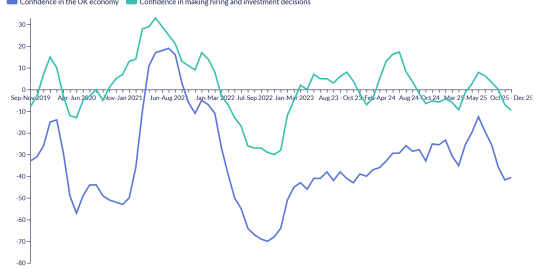Manchester solicitor Paul Tyrer, a partner at George Davies Solicitors, has wide experience of dealing with contractual matters. He warns company directors and senior executives in general to be especially vigilant when asked to sign or countersign a contract.
Let's face it, many of us are just too busy or too preoccupied to pay close attention to every single piece of paper that lands on our desk. If we scrutinised every letter, memo, agenda, minute, fax, e-mail, mailing, leaflet, job application, begging letter and brochure that came our way, we'd never get anything done.
Many of us find that we have to sign papers from time to time, as a matter of course.
There is a strong probability that we'll sign a document that we have confidence in, perhaps because we think we know the source or because we think we already know the contents. If it lands on our desk among, say, a pile of letters also needing signatures, we're even more likely to sign it. There's a habitual temptation to 'work through the pile', like a production line.
Signing piles of letters, cheques and documents, we subconsciously argue, is one of the time-consuming and tedious jobs we could do without. There are usually more interesting and fulfilling things that need our attention.
And that's where the catch lies. Those with very substantial budgets at their disposal, financial directors for example, should remember that their natural reluctance to do something monotonous could be seen as a golden opportunity by the unscrupulous.
Familiar?
It's always advisable to remember that the document, a contract perhaps, that you think you've become completely familiar with in the course of prolonged meetings and negotiations, may no longer be exactly the same as when you last saw it.
A line may have been rewritten here, a paragraph or number altered there - changing the fundamental precepts upon which it
sums of money could be involved.
Let me give you a case in point.
Scanners, of the type increasingly used for essential diagnostic work in hospitals, are very expensive pieces of equipment. They're priced in multiples of millions. Most NHS Trusts can't afford to buy them from a single years' budget. It is common practice to seek external term finance from competing sources, such as banks or finance houses, to fund these installations.
Some time ago a company - impressively named Eurocapital - began tendering for the provision of financial services to various NHS Trusts, offering very favourable terms for the acquisition of scanners and similarly expensive equipment. They were somehow managing to undercut all the main players' interest rates, making their proposals very attractive to hard-pressed Trust officers.
Almost too good to be true, you might say.
Small change
It transpired that their rates were, indeed, too good to be true.
Realising that the Trusts would use long and detailed 'standard' contracts once the rates and duration had been negotiated, the organisation was submitting contracts in duplicate for signature by the Trust, then taking both copies away to be countersigned.
The page giving details of the duration was then switched with a new page containing one simple difference: the agreed repayment term had been extended, usually by a couple of years, making the total sums to be paid far from competitive - quite the reverse, in fact.
Eurocapital then sold the agreements on to third parties leaving the new lender and the Trusts to argue over what was the correct duration. By the time the switch was noticed, Eurocapital had gone into liquidation.
Checklist
The lessons from this salutary tale are plain to see:
The best time to take legal advice is before you sign-off an important contract, not afterwards when a problem has arisen.
Never allow yourself to slip into the habit of signing things inattentively.
Always examine or re-examine any document requiring signature in
close detail before committing yourself to signing it.
Better still, initial each page as it is approved. Submit this to the other side for signature. This makes it much harder for a conman to make any detrimental changes.
Always sign the contract last - or at least sign one version each and then exchange them simultaneously.
If you are offered any financial arrangement that seems significantly better than those offered by others in the market, view it with suspicion. Ask for an explanation and contact a solicitor with experience of large contractual matters before committing to it.
Keep signed contracts (and copies) in a safe and inaccessible place to prevent them being subsequently tampered with. Your solicitor's safe is as good a place as any.
The cost of professional help in the completion of contracts will, more often than not, far outweigh the risk of being deceived by the unscrupulous.
Remember, you wouldn't dream of transacting a house sale without help from a legal professional. In substantial matters involving a business or Trust, it can be equally or even more important that legal skill and experience is brought into play.
Paul Tyrer George Davies Solicitors 0161 236 8992
Contract checklist

Be careful what you sign




